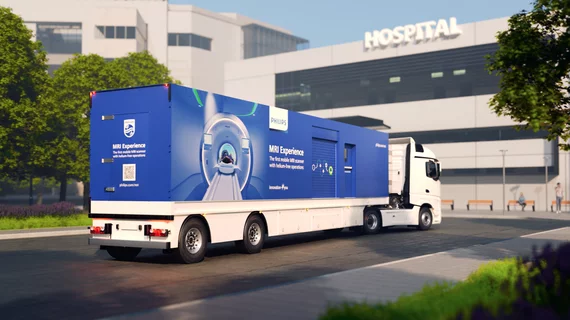Philips debuts first helium-conserving mobile MRI system of its kind at RSNA 2023
Royal Philips unveiled what it says is the “world’s first” mobile MRI system with helium-free operations at RSNA 2023 on Nov. 26.
The new BlueSeal MR is the only in the industry to deploy a 1.5T, fully sealed magnet, allowing users to deliver magnetic resonance imaging exams wherever possible.
Philips developed the mobile unit for outpatient radiology and oncology services provider Akumin Inc. Placing this “breakthrough” technology in a mobile unit will allow the two companies to expand access to MRI exams while also preserving the planet by reducing emissions.
“Philips is partnering with healthcare systems to help them tackle resource constraints and continued increases in patient volumes, and having access to mobile MRI scanners is a real game-changer for remote and rural communities around the world,” Ruud Zwerink, general manager of magnetic resonance at Philips, said in an announcement.
Compared to conventional magnets that typically require about 1,500 liters of liquid helium, users only need to pre-load the BlueSeal with 7 liters. Philips said it has install more than 600 such systems globally, saving 1.5 million liters of helium since 2018.

